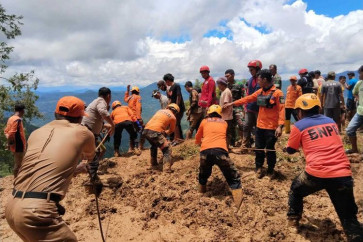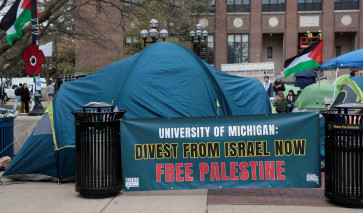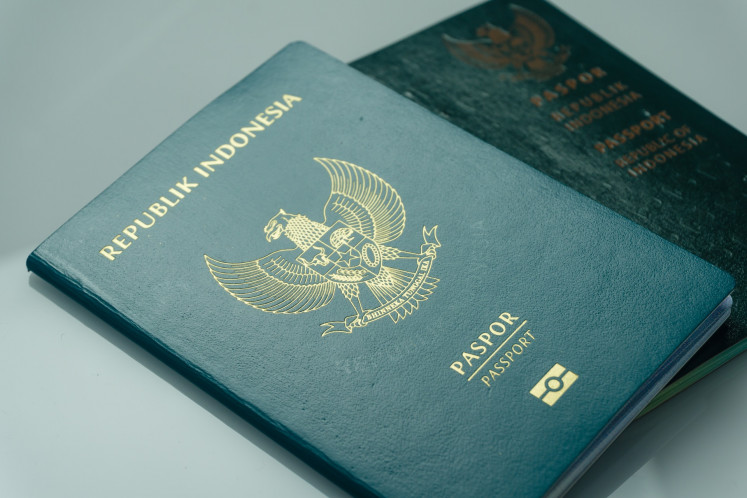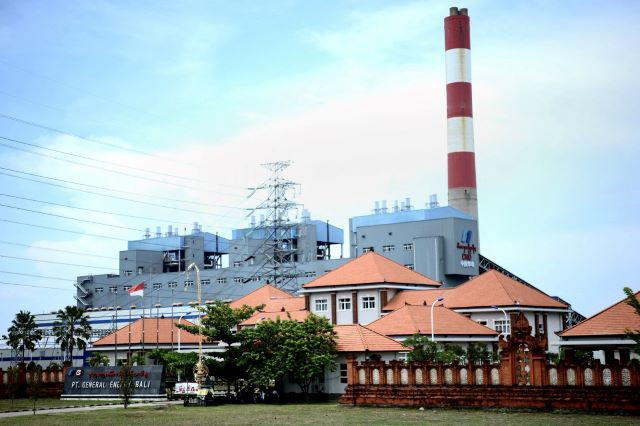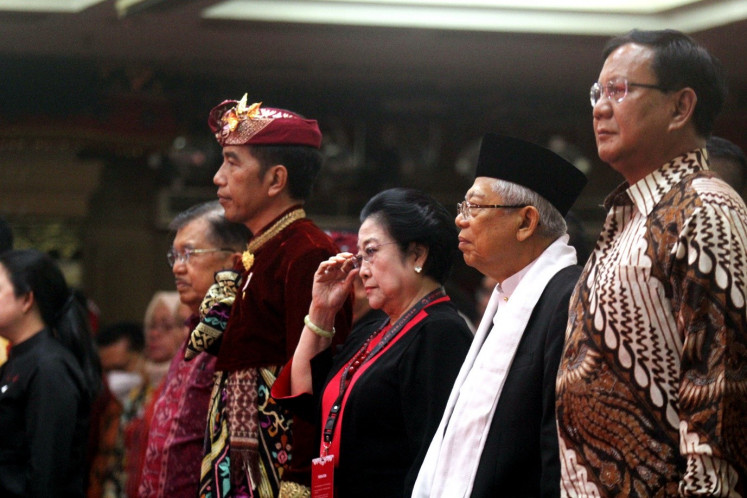Indian-Indonesian camaraderie
The 60th anniversary of the Asian-African Conference, famously known as the Bandung Conference, will surely miss the enthusiasm of 1955 when the Cold War was at its peak
Change Size

T
he 60th anniversary of the Asian-African Conference, famously known as the Bandung Conference, will surely miss the enthusiasm of 1955 when the Cold War was at its peak. Defying imperialism, capitalism, militarization and, over and above all, US-led regional ghettoization, 29 newly independent Asian and African countries gathered in Bandung, Indonesia to deliberate on independence, peace and economic prosperity.
As the Indian prime minister (PM) skips the commemoration, the Bandung Spirit will definitely echo the friendship between the first Indian PM, Jawaharlal Nehru, and the first Indonesian president, Sukarno, the architecture of the Bandung Conference and thereafter the Non-Aligned Movement (NAM).
Indian PM Narendra Modi, while on a tour of three Western countries, regrettably wrote a letter on April 16 to Indonesian President Joko 'Jokowi' Widodo about his inability to attend the conference and dispatched his foreign minister to attend on his behalf. Is it a diplomatic oversight for President Jokowi, who sent an invitation very late as reported in Indian media (New India Express, March 22) and who couldn't accommodate dates of the Indian PM? Or is it Modi's rejection of the long-standing (erstwhile) Non-Aligned Movement espoused by Nehru himself with Sukarno?
President Jokowi, who was born exactly five years after the Bandung Conference, would have a different perspective of the spirit of Afro-Asian solidarity than the Indian PM, who was born five years earlier.
Despite both coming from humble backgrounds with no links to an elite political class, it's Jokowi who might be more inclined to the ethos of the Nehru-Sukarno ideals of the five principles of peaceful co-existence (Panchasheel in Sanskrit), which was a product of the African-Asian Summit, suitable for that era and relevant now for countries that follow independent foreign policies. His foreign policy is the continuation of the 'free and active' policy successive Indonesian governments have been following since Sukarno.
However, both the present leaders are riding on huge mandates of the expectations of its citizens to deliver on the domestic as well as global stage.
Since October last year, President Jokowi has been looking for a stage on which to showcase Indonesia and his presidency to the world as the able successor of internationalist Susilo Bambang Yudhoyono. During his election campaign and thereafter, Jokowi has reiterated his priority foreign policy goal of reinventing Indonesia's strength on the ocean, in the straits and the seas to turn Indonesia into a 'global maritime axis'.
Jokowi needs a big ticket. Perhaps, Bandung 60 is that particular stage that hosts dozens of heads of government from across Asia and Africa.
Whereas, Modi has been re-arranging and reformulating India's bilateral relations with all the major powers, each on its own merit. In his first year, PM Modi through his 'neighbor first' to 'regionally global' foreign policy has put India already onto the global stage. Modi has moved from the notion of being 'non-aligned' with major powers to collaboration with the US, Australia, Japan, Germany and France. The long-standing Panchseel is now restricted to China only as far as India's foreign policy is concerned.
Both Modi and Jokowi had met face to face twice during ASEAN Summit in Myanmar and G20 Summit in Australia. Observers commented that Modi had earlier missed the opportunity to send a delegation to attend President Jokowi's swearing-in ceremony. Now, he again missed the opportunity to meet his hugely popular counterpart in the world's biggest predominantly-Muslim nation.
India's 'Look East' policy, which deliberately transformed into 'Act East' under Modi, is yet to be seen to accommodate Indonesia as an anchor in the region. It may not be too late for India to shape its strategic depth in the crimson tide of the South China Sea and the Indian Ocean. Whether it is the roaring chariot from the epic Mahabharat in central Jakarta, or bajaj three-wheelers on the streets, or Bollywood's iconic movies and songs, India must not be complacent. Both countries' bilateral relations needs to go beyond the Bandung moment of 1955.
Many argued that the end of the Cold War sounded the last death knell for the NAM. However, countries like China, Iran and Afghanistan have faith in NAM even in today's world politics. Egypt, another founding member of the Bandung Summit, is represented by its prime minister.
In the wake of the formation of the Asian Infrastructure Investment Bank (AIIB), China will utilize the gathering to satisfy needs of investment-lacking countries in both continents. Indonesia as one of the founding members of the AIIB has already conveyed its requirement for fulfilling its investment gap through this institution.
India's ambition to invest in the long-term plan to develop Indonesian railway infrastructure may have to face competition from Japan and the AIIB.
It may not be strange to see Jokowi using this gathering to push for the establishment of the AIIB's headquarters in Jakarta before the final AIIB chief negotiator's meeting in Jakarta in May.
During a visit to Bandung in August 2011, which boasted one of the pivotal events in modern history, the Asian-African Conference, like many others in India and Indonesia I recollected the glorious linkages of India and Indonesia from the last two millennia.
In this part of the world, the Bandung Conference will remain a milestone in modern world history that relentlessly demanded justice and peace as rights in the spirit of solidarity.
___________________
The writer is senior fellow at the Society for the Study of Peace and Conflict (SSPC), New Delhi.

